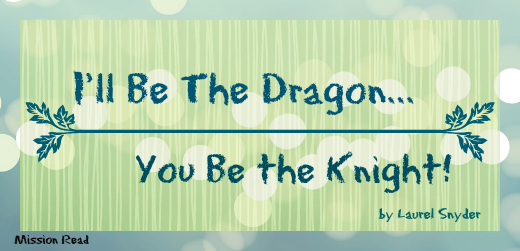“I’ll be the dragon…” by Lauren Snyder
When I think about Storytelling, I think about my best friend Susan, and the imaginary games we used to play, in an overgrown patch of tangled trees, behind Loyola College, in Baltimore, MD. We were eight or nine. We’d walk there from my house after school, slip back into this mess of vines and weeds, and lose ourselves completely.
Beginning the game was the hard part. Because we had to make the leap from our “real” world into the story. We had to shed our tube socks and band-aids and patched jeans, and lopsided braids, and don glittering wings or bejeweled crowns or mermaid tails.
We had to say the actual words that would make this transformation possible. Something like, “You be the queen and I’ll be the fairy,” or “You be the witch, and I’ll be the lost girl.” We had to establish the rules, set the scene, assign roles.
Then we had to plunge into the story. We had to trust each other, and be willing to plunge.
But once we were there, on the other side, it was easy! I was the fairy. I was the little girl. Because children’s are natural storytellers. They haven’t been ruined yet. They have this amazing gift, this ability to follow the wildest narratives. Their willing suspension of disbelief is vast. They are more flexible than we adults can even fathom.
Susan and I would play for hours, acting out a meandering story that didn’t follow the rules of what I now call “narrative structure.” “Flat” characters would come and go, “illogical” worlds would be built as needed, and then melt away. Nothing was premeditated. Tragedy was allowed. It was an amazing, wild, unsupervised story.
Now, looking back at that memory as an author, I wish I could still play that way. My Storytelling skills feel cramped by comparison, stale. I’ve learned too many rules to be so wild. I’ve learned “what works” and “what doesn’t work.” I have an audience now, and that changes things.
I’m a mother now too, and I watch my boys do the same sort of playing. I work hard to keep myself from ever intervening. Even as I watch them in the yard, “flying” off the jungle gym, or hitting each other with sticks in some thrilling “battle”. The grownup in me wants to run out there, keep them from danger, from mess, from pain. But the part of me that can remember, just a little, stays inside, hides behind the curtain. I don’t want them to know they have an audience.
“You be the dragon,” Mose will say to Lew, in the next room, on a rainy day, “and I’ll be the knight.” I know this is going to end in someone bleeding. But I stand there on the other side of the door, and smile to myself. I don’t stop them. I envy them.
Sometimes, when I go on author visits in schools, I talk about this memory with the kids I meet. I ask them if they play imaginary games. Some of them nod, with secret smiles, happy to know that we share this magic.
Some of them laugh. They’re too old for baby games like that. Or they prefer their adventures to be pixelated. They like to act out stories, they tell me, but in video game form.
“Okay,” I say. “That’s fine too.” I’m not there to judge.
But honestly, it makes me a little bit sad, to think that some of these kids have so many digital characters to choose from that they’ll never make up their own. Or rather, to realize that they think making up their own character is about choosing which color costume to assign to their avatar. They are used to “creative” games. But they don’t know the joys of limitless invention. Their game is finite. There are walls to their world.
In the game I played with Susan, there was no avatar to look at. There were no rules. We could go absolutely anywhere in our world. We could leave our world, and jump into another one. We could slip out of one character and into another.
Storytelling is, for me, the part that comes before writing, before structure, before there are rules or pictures. Storytelling is the wildest forest, the most unbelievable land. It gets harder as we get older. Some people stop doing it altogether.
And I’m beginning to think some people never get to do it.
So I guess this little essay has turned into a plea. As adults, I think we owe it to our kids to let them get bored enough, disconnected enough, alone enough, to truly invent a world, a character, all their own. It isn’t enough to let them “select” a character. If we rob them of the chance to create, to truly invent, to run wild as thinkers… we are teaching them that the world is finite.
And if we watch them play, if we hover, they will always have an audience. Which is just another sort of wall.
In my dream world, I want every kid say the magic words, “You be the dragon, and I’ll be the knight…” I want them to say the words alone, to each other, in a tangle of vines somewhere, or a fort made of pillows, a world made of stories.
ABOUT LAUREL: Laurel Snyder is the author of five novels for kids, including Bigger than a Bread Box and its forthcoming companion, Seven Stories Up. She also writes picture books, poems, and occasional essays, when she isn’t chasing after her two small boys.
Find Laurel on Twitter @laurelsnyder or at her site:http://laurelsnyder.com







